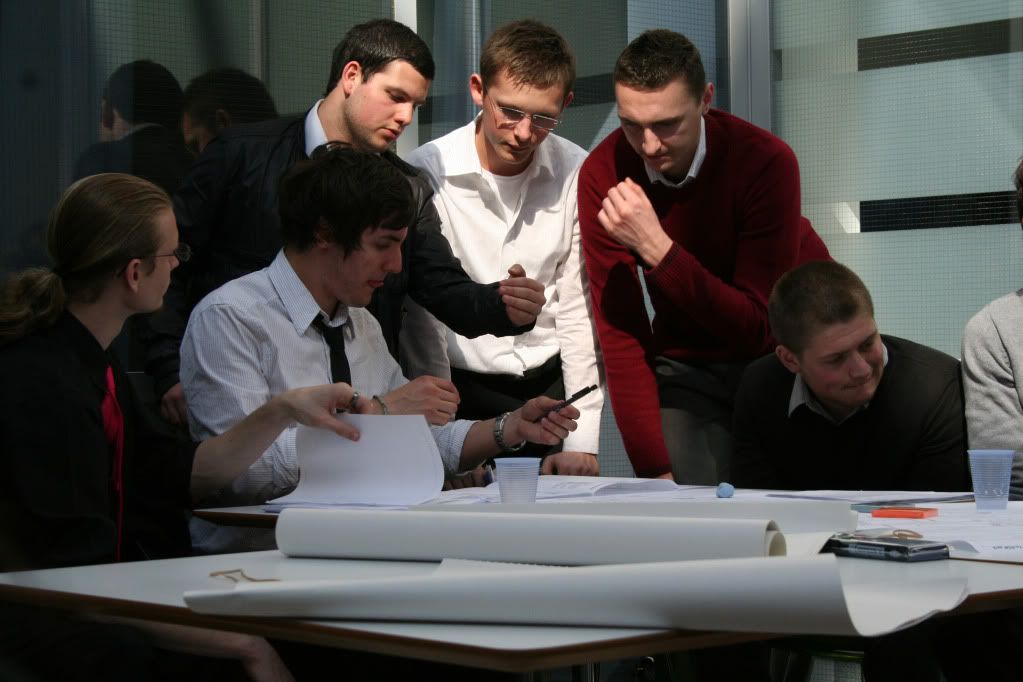 Children North East chief executive Jeremy Cripps with _space facilities associate director Andrew Moore outside of the WEYES building on Graingerville North looking at the plans.
Children North East chief executive Jeremy Cripps with _space facilities associate director Andrew Moore outside of the WEYES building on Graingerville North looking at the plans. A facilities firm has pledged to redesign a Newcastle youth drop-in centre free of charge in a bid to keep the vital service on its feet.
The West End Youth Enquiry Service (WEYES) project, run by charity Children North East, has been operating out of a rundown Victorian building in Graingerville North, West Newcastle, for the last decade.
Now Tyneside-based _space facilities, part of Space Group, has pledged to give the charity free design and surveying services to completely renovate the building.
The building is currently in such a bad condition that the charity has been forced to move into temporary accommodation on Grainger Park Road in the city until the renovation is complete.
_space facilities has already begun drafting the designs for a suite of new treatment rooms, a new waiting area, kitchen and toilet facilities, an office and ‘open zone’ rehabilitation area.
The WEYES project, which has also gained support from Geordie actor Tim Healy, is an advice and health centre for some of the most difficult to reach young people who live, work or go to school in the West End.
Over the past 10 years, 7,500 young people have passed through its doors looking for advice on a range of issues. Counsellors and nurses are on-hand to give advice on general, sexual and mental health, as well as education, housing and employment issues.
_space facilities associate director Andrew Moore, who is heading up the scheme, said: “We are well underway with the new designs to bring the building up-to-date and make it a brighter and more welcoming place to help support young people living in Newcastle, who may otherwise have limited chances.
“Creating and maintaining sustainable communities and helping charities, such as this, bring the community together and are things we are very passionate about as a business.
“As Children North East is one of our chosen charities, we will do everything we can to help them keep this service going and that is why we have donated our services in kind.
“We are urging more sponsors and supporters to come forward to help donate building materials, interiors features and so on.”
Children North East chief executive Jeremy Cripps said: “We previously rented the building so we were unable to do anything to it. It has become a really horrible site - inside and out - and needs a lot of work done to make it a bright and welcoming place for young people to want to come.
“Children North East has since bought the building so now we are really able to do things to it to make it look fabulous – which is where _space facilities comes in.
“We are really grateful for Space Group’s help in making this building a centre for the future for the young people of today.”
Work will start once planning permission has been granted, with completion due by the end of this year.
Children North East needs to raise £250,000 to help make the project come to life and fund building materials.
To help support the refurbishment of the WEYES project, donate online at www.justgiving/weyes or call Children North East on: (0191) 256-2444.




